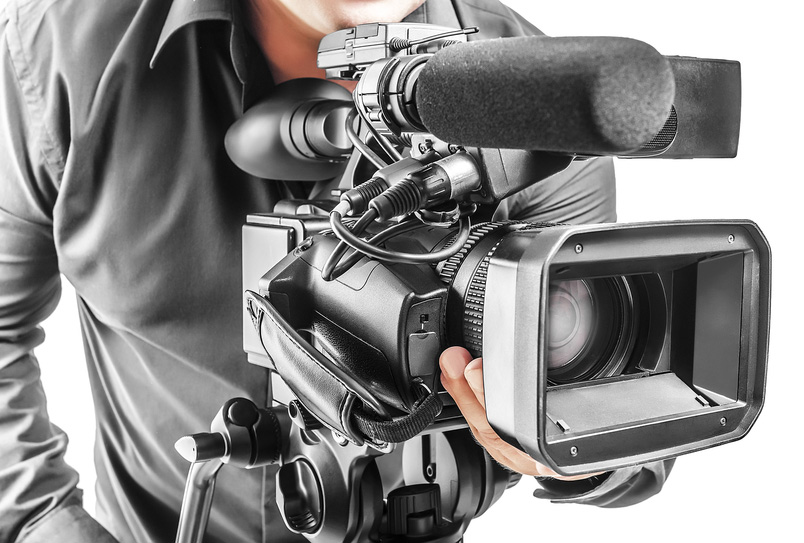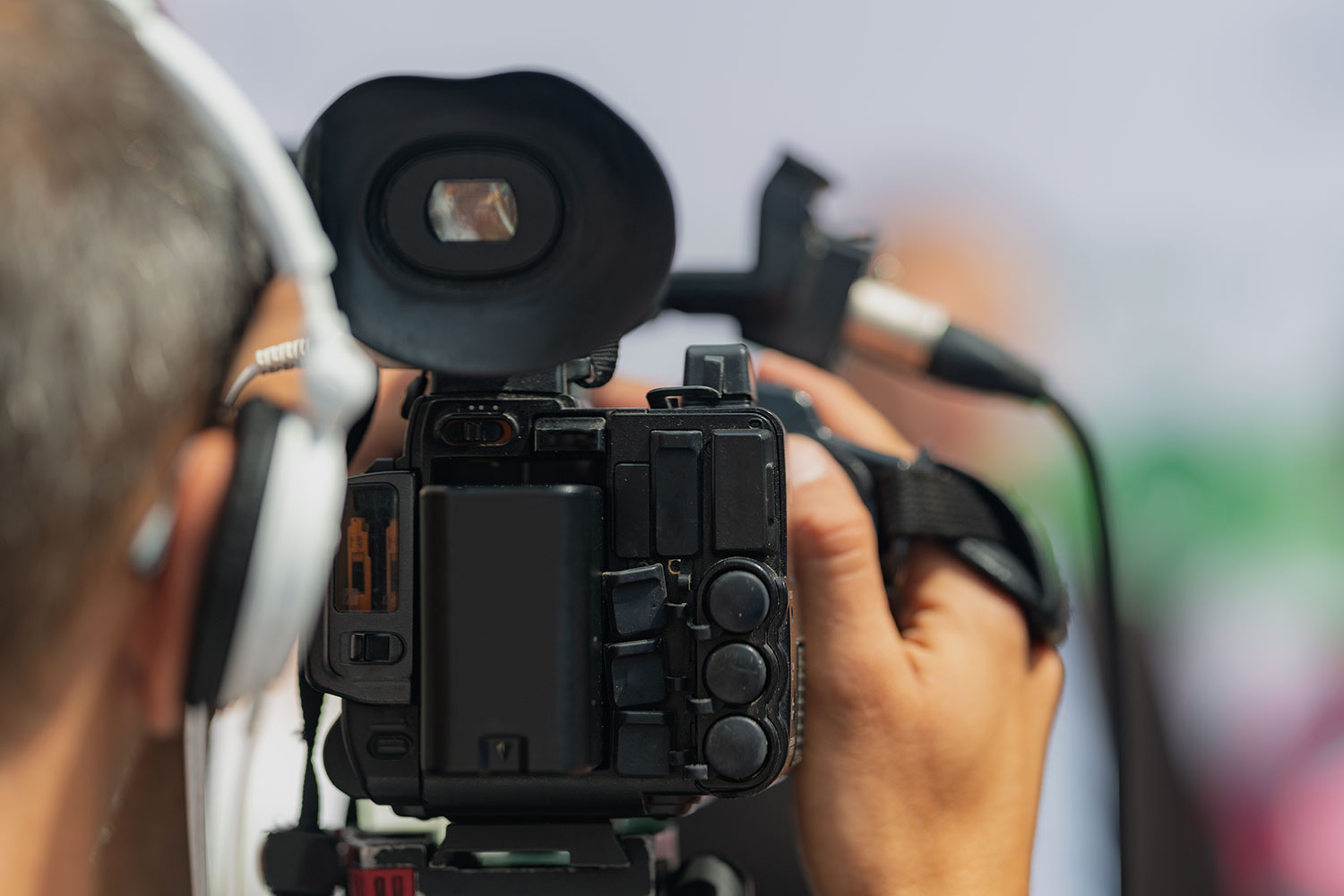The Function of Legal Videography in Depositions and Trials
Legal videography has arised as a necessary tool in both depositions and trials, providing a multifaceted method to recording witness testaments. As legal experts significantly recognize its value, it prompts a deeper examination of how these visual documents can influence juror assumptions and test outcomes.

Relevance of Legal Videography
Lawful videography plays a crucial role in the paperwork and discussion of depositions and tests. This specialized field integrates technical skills with legal expertise to create a trusted record of process that can substantially affect case results. The visual facet of legal videography improves the understanding of witness testimony, allowing jurors and courts to observe not only the talked words yet likewise the behavior, emotions, and body language of the witnesses.
Furthermore, legal videography provides an unbiased account of occasions, reducing the potential for misinterpretation that can happen with created records alone. This visual documents functions as a critical device during test presentations, promoting a clearer and even more influential narrative for both complainants and accuseds. The capacity to replay video sectors throughout court procedures enables legal teams to highlight key points, reinforcing their arguments properly.
The significance of lawful videography extends past the court room; it also plays a vital duty in preserving proof for future referral, whether for appeals or additional legal action. Its integration into the legal process is important for making sure a fair and precise depiction of the facts, eventually contributing to the search of justice.

Process of Legal Videography
While capturing the nuances of depositions and trials, the process of legal videography entails several vital actions that make certain top notch, exact recordings. A specialist legal videographer prepares by evaluating the situation materials and comprehending the specific needs of the deposition or test. This prep work consists of acquainting themselves with the participants and the context, which assists in catching important details.
On the day of the recording, the videographer establishes the needed tools, which usually consists of high-def electronic cameras, microphones, and correct lights. Making certain ideal angles and audio top quality is critical, as it directly affects the performance of the recording. The videographer communicates with lawyers and individuals to establish methods, making certain that every person comprehends the recording procedure.
Throughout the deposition or test, the videographer thoroughly records the process, paying attention to both verbal and non-verbal cues. This consists of capturing the attitude and reactions of witnesses and lawyers. After the session concludes, the videographer might modify the video footage for clearness and compliance with legal requirements, producing an end product that accurately shows the procedures for future recommendation and use in legal contexts.
Benefits in Depositions
The consolidation of videography in depositions uses many benefits that enhance the general process of gathering proof. One primary benefit is the capability to record witness statements with aesthetic and auditory fidelity, offering a much more precise depiction of the witness's temperament, tone, and body movement. This multidimensional method enables attorneys and juries to analyze reputation more effectively than standard written transcripts alone.
In addition, videographed depositions work as a powerful device for maintaining statement. Should a witness ended up being unavailable for trial, their navigate here videotaped deposition can be played in court, ensuring that their evidence stays available and pertinent. This aspect significantly reduces the danger of shedding essential details that can impact situation end results.

Finally, videography improves the overall professionalism and trust of the deposition procedure, instilling confidence in clients regarding the thoroughness of their legal representation (legal videography). By leveraging modern technology, lawyers can substantially boost the performance of depositions
Influence On Tests
In many tests, the assimilation of videography can significantly affect the discussion of proof and the jury's understanding. Lawful videography captures witness testimonies and critical proof in a vibrant format, enabling jurors to engage with the material on several degrees. This visual part enhances the narration facet of a trial, giving context and psychological resonance that traditional text-based proof might do not have.
Additionally, video recordings can act as powerful devices for impeachment during cross-examination. When disparities develop in between a witness's previous declarations and their court statement, video clip proof supplies an unbiased recommendation that can sway jurors' opinions. This immediacy and clarity can reinforce the reliability of a party's story while concurrently weakening opposing debates.

Future Trends in Legal Videography
As we look toward the future of legal videography, numerous emerging fads promise to improve its function within the court. One substantial fad is the assimilation of expert system (AI) in video evaluation and editing. AI can simplify the process of determining crucial moments in taped depositions, enabling attorneys to swiftly access pertinent web content, consequently improving effectiveness in instance prep work.
In addition, the surge of virtual reality (VR) and boosted fact (AR) innovations is expected to change how jurors experience evidence. legal videography. By submersing jurors in a simulated setting, these technologies can provide a more extensive understanding of complex circumstances, causing even more educated deliberations
Moreover, the enhancing demand for remote depositions, sped up by the COVID-19 pandemic, will likely continue. Legal videographers will certainly require to adjust to new software program and systems to make certain premium recordings in online settings.
Finally, the expanding focus on information security will certainly require stricter methods Check This Out for storing and sharing video proof. As the legal landscape develops, legal videographers must remain abreast of these patterns to preserve their significance and efficiency in the judicial process.
Final Thought
In recap, legal videography offers a critical feature in the judicial procedure, improving the honesty of depositions and tests. By capturing the nuances of witness statements, this medium not only preserves crucial evidence yet also help in providing information effectively to jurors. The significance of visual paperwork in assessing reputation and helping with interrogation can not be overemphasized. As modern technology proceeds to develop, legal videography is positioned to further transform its function within the legal landscape.